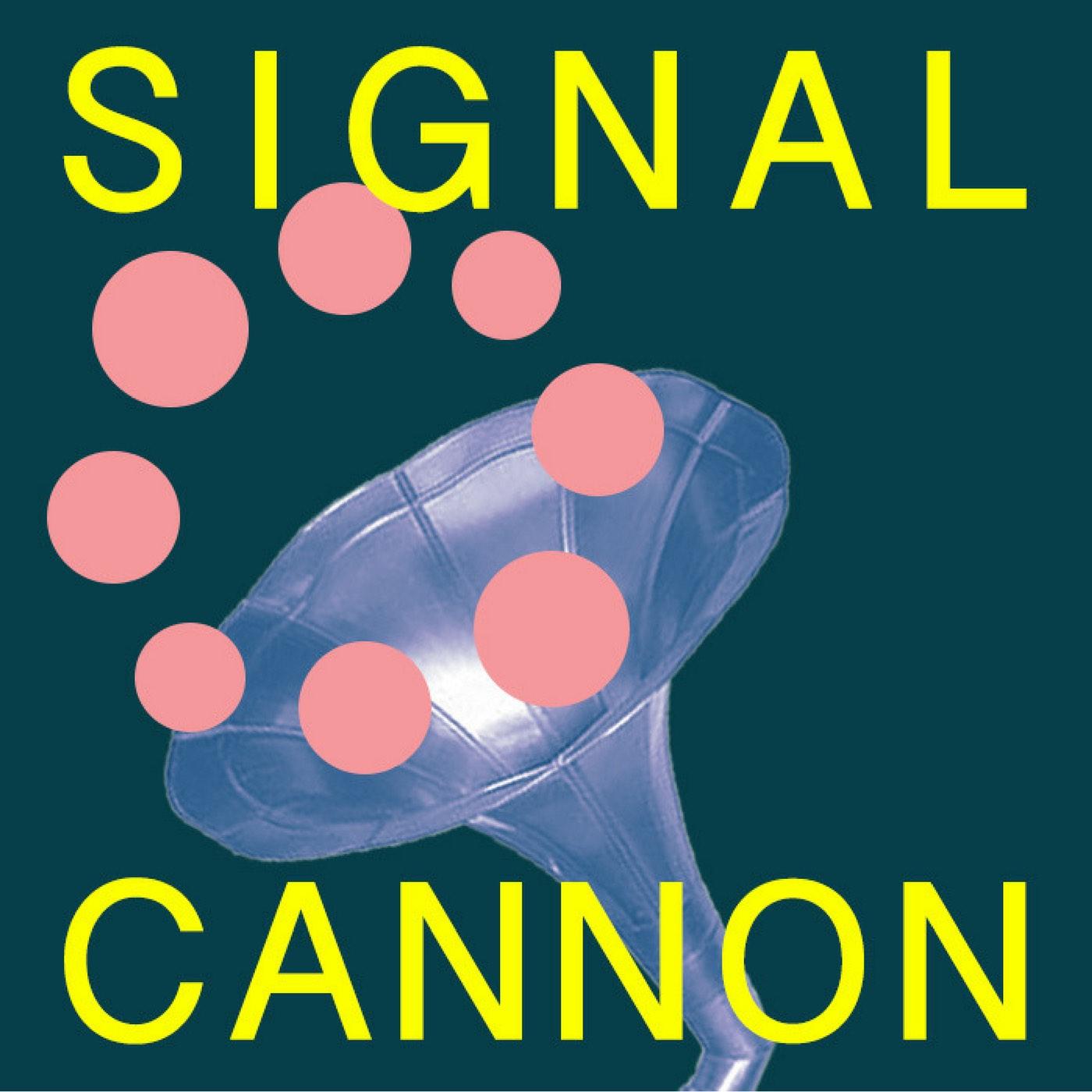
Signal Cannon delves into the history of a particular sound, song, or form of audio that helped shape pop culture.
It began as a group of friends making experimental 4-track cassette recordings in rural Louisiana but became the country-wide lightning rod for lo-fi underground talent in the 90’s. Bands like Neutral Milk Hotel, orbited a nucleus of childhood friends that would go to produce some of the most notable indie records of the decade.
Hear how kids in a sleepy college town created their own music scene and formed a collective identity rooted in avant-garde home recording. It's the Elephant 6 Recording Company.
A budding comedian looking to make the leap to film. A studio on the ropes. This movie needed to be a hit.
This week, Signal Cannon looks back at a cult classic film from one of the world’s most prolific musicians and comedians. Hear how the bizarre movie they made during one of the busiest blockbuster summers ever likely bankrupted its studio and nearly ended the career of its star before it had even begun. It's UHF from Weird Al Yankovic!
In the morning, as the mist clears, Francis Scott Key witnesses the raising of the ceremonial American flag above the fort. The British had not taken Fort McHenry during the night and retreated to beyond artillery range. Francis Scott Key, inspired to commemorate the victory, begins writing a poem to the tune of a familiar drinking song.
That poem you know as "The Star-Spangled Banner." But what do you really know about Francis Scott Key? And what about the song's next verse? That’s today, on Signal Cannon.
The history of video game music offers a look into the history of computers themselves. In the early days computing power was very limited and playing graphics and sound together was an expensive engineering and programming challenge. The Apple II in the late 70's could cost you over 10 grand in today’s dollars. Today we play games with sophisticated audio created by talented musicians and sound designers. How’d we get from dingy arcades to a 100 billion-dollar global entertainment industry?
While I’m not much of a video game player myself, the games I have played always had me thinking about the complicated mixing and composition involved. The tempo rises and falls according to the action onscreen. The soundtrack shifts with day and night. The music often gets more complex as progress is made. Sounds have to be designed and recorded. All that innovation had to come from somewhere. Who did it first?
From beeps and boops to strings and plastic guitars. The History of Video Game Music, on Signal Cannon.
CREDITS
Signal Cannon is produced b, Billy Donahoe and distributed by PlayTooMuch. For more Signal Cannon and other great podcasts, visit PlayTooMuch.com.
Our theme music was written by Eric Donahoe. Show art by Julianne Waber.
Super Mario Galaxy was released in 2007 by Nintendo. Theme composed by Mahito Yakoda and Koji Kondo.
Fallout 4 was released in 2015 by Bethesda Game Studios. Theme composed by Inon Zur.
Space Invaders was released in 1978 by Taito Corporation.
Super Mario Bros. was released in 1985 by Nintendo. Theme composed by Koji Kondo.
Super Mario Bros. 3 was released by Nintendo in Japan in 1988 and North America in 1990. Koji Kondo composed the theme.
Super Mario 64 was released in 1994 by Nintendo. Composer, Koji Kondo.
Banjo-Kazooie was released in 1998 by Rare. Theme by Grant Kirkhope.
The Legend of Zelda: Ocarina of Time was released by Nintendo in 1998. Composition by Koji Kondo.
“Superman,” was written by Goldfinger, first released on the 1997 album Hang-Ups by Mojo Records, then again as part of the Tony Hawk’s Pro Skater Soundtrack in 1999.
You can follow me on Twitter @BillyDonahoe and learn more about this episode at PlayTooMuch.com
This is Signal Cannon.
In 1977 NASA sent the Voyager spacecraft to take pictures of the outer Solar System: Jupiter, Saturn, Uranus, and Neptune. But it also carried a very special piece of cargo: a phonograph record containing the sights and sounds of Earth in the hopes that an alien civilization might one day find it and learn about humanity. Speeding away at 38,600 mph, The Golden Record is the most distant man-made object in the galaxy. It's a mixtape...in interstellar space.
Amanda is a wife. A mother. A blogger. A Christian.
A charming, beautiful, bubbly, young woman who lives life to the fullest.
But Amanda is dying, with a secret she doesn’t want anyone to know.
She starts a blog detailing her cancer journey, and becomes an inspiration, touching and
captivating her local community as well as followers all over the world.
Until one day investigative producer Nancy gets an anonymous tip telling her to look at Amanda’s
blog, setting Nancy on an unimaginable road to uncover Amanda’s secret.
Award winning journalist Charlie Webster explores this unbelievable and bizarre, but
all-too-real tale, of a woman from San Jose, California whose secret ripped a family apart and
left a community in shock.
Scamanda is the true story of a woman whose own words held the key to her secret.
New episodes every Monday.
Follow Scamanda on Apple Podcasts, Spotify, or wherever you listen.
Amanda’s blog posts are read by actor Kendall Horn.